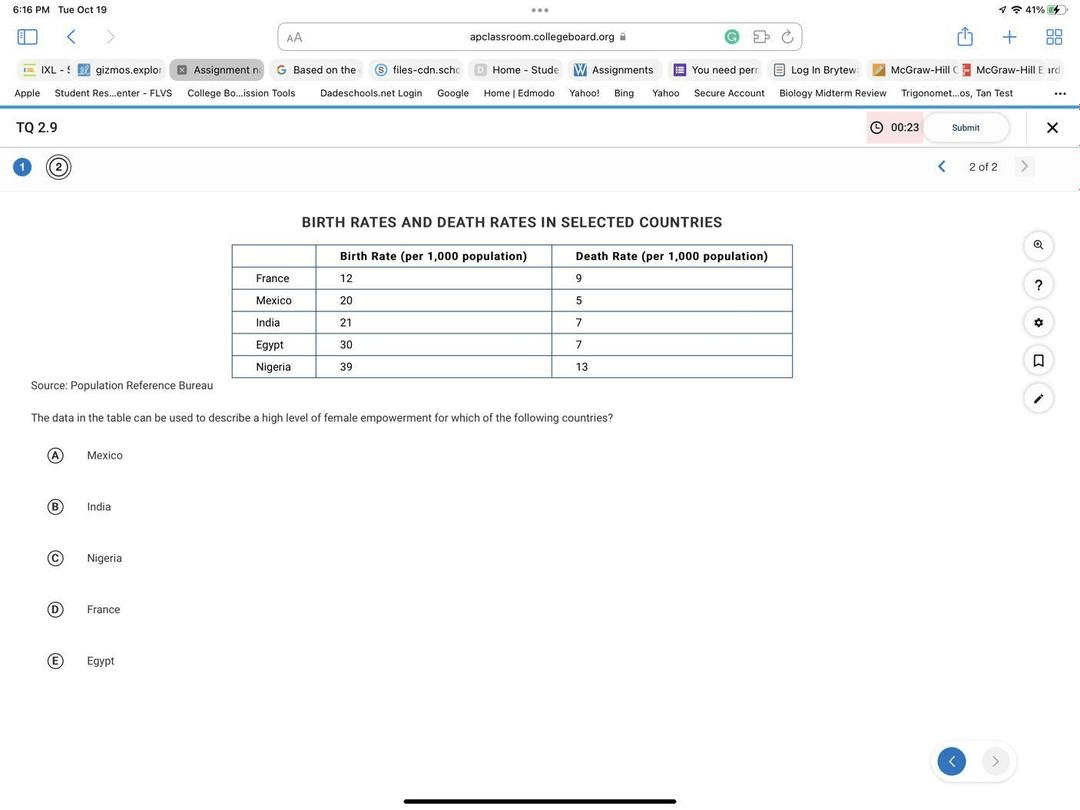Recently, I was conversing with a former provost and dean of a university who now serves as the head of a classical Christian school. We were discussing dual-enrollment programs, and Advanced Placement (AP) courses and exams. For his own school, he was looking to spearhead dual-enrollment options rather than facilitate the addition of AP courses to his curriculum.
I asked him to explain why he wouldn’t seek to bring in AP courses. His response, while not unfamiliar to me, helped reinforce the rationale we’ve employed here at DVCS: that AP is no guarantee of college credit and that the AP program is in some tension with the pedagogical and formative goals of classical Christian education.
First, a student will usually need to attain a score of no less than a 3—and very often a 4 or a 5 (on a scale of 5)— to be considered for credit. More than this, however, because there is no guarantee that a particular college or university will offer credit for AP exam performance¹, the term AP often becomes a proxy for rigorous coursework. After all, the transcript is often seen as the most important part of the college admissions process (especially as the trend toward “test optional” becomes more widespread), a process so marred by a general subjectivity that knowing how to gain acceptance to a particular school (perhaps especially an “Ivy”) can be confounding at best.
By The College Board’s own admission, “Each AP course is modeled on a comparable introductory college course in the subject.” That may actually matter in secondary institutions where courses are generally taught at a less rigorous level, but in the case of DVCS, our courses at the high school level earn recognition of being college level beginning in as early as the 9th grade (Greek I). This all gets to the pragmatic argument for why AP courses are not something that DVCS is seeking to offer.
As to the more principled reason, the offering of AP courses is at odds with our pedagogical and instructional goals, which are not to train students to merely cram, pass, and forget. Whether or not a student actually takes the AP exam is irrelevant to the fact that the course is aimed and shaped by the exam.
Recalling our mission, which states in part that we desire, “to assist parents in preparing their children to excel in every duty and calling God has for them by providing a classical and Christ-centered curriculum designed to equip graduates with the tools to acquire, process, express, and defend knowledge from a biblical worldview” it must be clear that our aims are not primarily worldly successes or resume building.
Rather, the liberal arts were and are the bedrock of all advanced learning. Schools do not have the time (and it is humanly impossible) to teach students everything they may need to know. But the tools of learning, including and especially those of language acquisition, literacy, and numeracy are essential to human flourishing and further learning. Moreover, our goal is always to get after what is true, good, and beautiful, foster deep understanding of the intricacies of the created world, and to help form our students to love the same. There is an intellectual rigor that goes along with this goal to be sure, but we seek to keep ultimate things ultimate.
It is worth considering that The College Board may actually use the AP Program as a vehicle for the formation of a distorted worldview. See the screenshot² below which is a question associated with AP Human Geography. Question: “The data in the table can be used to describe a high level of female empowerment for which of the following countries?” The correct answer to the question is France, the correlation being that female empowerment is equated with lower birth rates. One might easily answer Nigeria, but that answer would be incorrect. Presumably, however, the correct answer to this question is taught within the course itself.
For what it’s worth, we have encouraged students to take AP Exams, if desired, and some students have seen success despite not having taken an AP course. Nonetheless, the broader principle here is that we remain thankful for our partnership with Cairn University and for a curriculum which literally aims higher than what AP can offer.
Visit us to learn more about classical Christian education in Delaware!

1 I note here that a dual-enrollment similarly offers no firm guarantee of college credit at any particular college or university, though our experience suggests that many of the colleges and universities our students matriculate to do indeed accept the credits, either for general educational requirements and/or even for a major related course.
2 Source: Classic Learning Test, Viral tweet reveals concerning question on AP exam, November 6, 2023.





